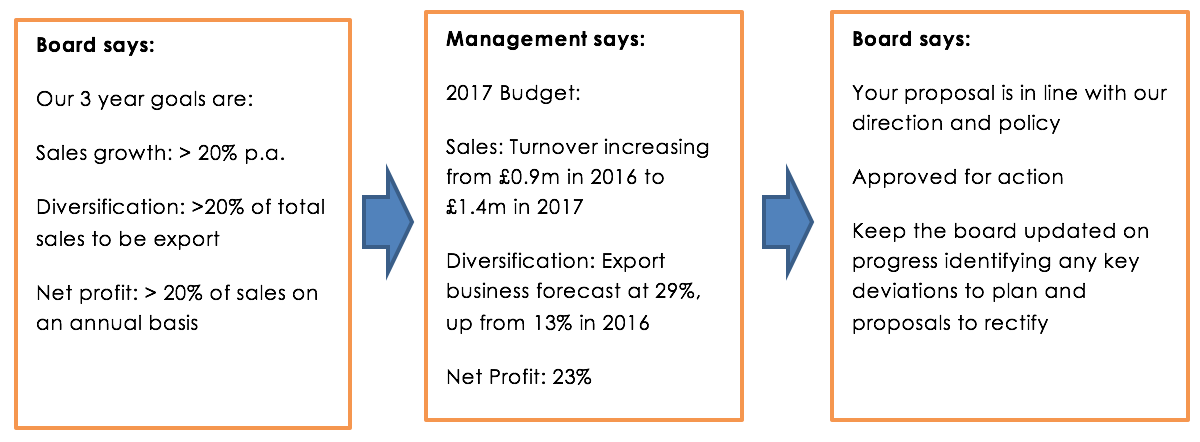Role of the Board of Directors?

POSTED ON: Friday, January 20th, 2017
CATEGORIES: Business Strategy and Planning, Leadership and Management
The principle duties and objectives of a board of directors are to:
A. Ensure that the business is run in the best interests of the shareholders. This essentially means running the business to maximise profit within the law and the ethical and operational policies set down by the board.
B. Ensure that the business complies with its statutory duties. For example remaining able to pay its bills, complying with company law, health and safety etc.
C. Ensure that an appropriate governance structure is in place to enable (a) and (b). This means having appropriate people, checks and balances to ensure that what is supposed to happen does actually happen. And if it doesn’t happen, then something gets done about it.
The directors of a business are its ‘controlling mind’ in that they set the framework in which the business operates. They set the policy and direction. Whilst management then deliver the results within that policy and direction.
The responsibilities of a board of directors are fundamentally different from those of the management of a business. In a very simple sense:

As displayed above, management would then report its progress to the board on a regular basis and the board will hold management to account for its delivery.
In theory, the board should not be involved in the management of the business. Its job is to check and challenge management. If the board is involved in day-to-day management, it is essentially marking its own homework, which is not the best policy for keeping everything honest.
Theory is all well and good, but practice is a little more complicated, especially where the business is owner-managed as you are wearing multiple hats which you might need help putting on and taking off.
So why should an owner managed SME have a board of directors?
Quite simply, to hold the management team to account (including you as owner-manager)!
They enable you to take a step out of the detail of running your business and take a dispassionate overview. A board is the key to enabling you to work on your business, as well as in your business. They also bring an outside perspective and experience of other businesses and industries which can help to shape and develop your thinking.
What makes a good Board of Directors?
The make-up and size of the board depends on the business. There is no magic formula. However here are some solid principles:
- Focus on selecting individuals who will add value to the business and supply any necessary skills that the business requires (e.g. strategy, finance, legal or HR)
- A manageable size is around 5 members with a maximum of 9.
- Make sure there is a good balance of people who understand the detail of the business and those who don’t – you need enough ‘outsiders’ to challenge and develop the ‘insiders’.
- Smaller boards can be more efficient as directors will find communication easier.
- It is easier to organise board meetings for a smaller group than a larger one.

Where do I start?
Invite us to a board meeting! We’ll attend your board meeting (no charge or obligation). Then discuss how you might make future board meetings work to your full advantage. If you’re not running board meetings (see our next newsletter…) talk to us about setting them up!